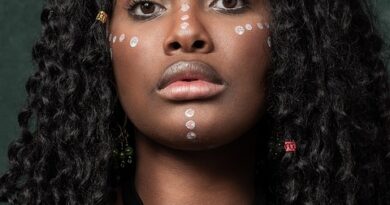Celebrating Diversity in American Women’s Clothing: Insights from Fashion Experts
Celebrating Diversity in American Women’s Clothing: Insights from Fashion Experts
When it comes to fashion, celebrating diversity and highlighting the uniqueness of individuals has become a growing movement in recent years. The fashion industry has recognized the importance of inclusivity and representation, promoting a range of styles that cater to women of all ethnicities, body types, and cultural backgrounds. In America, this celebration of diversity is particularly prevalent in women’s clothing, as experts strive to create a fashion landscape that encapsulates and celebrates the rich tapestry of cultures and identities that make up the nation.
American fashion designers and experts have taken upon themselves the responsibility of ensuring that women’s clothing reflects the diverse experiences and backgrounds of the women who wear them. By embracing the idea that there is no one-size-fits-all approach to style, these experts have opened up a world of possibilities for self-expression and creativity while creating a sense of belonging for women from various backgrounds.
One of the most significant aspects of celebrating diversity in American women’s clothing is the inclusion of different cultural influences. Fashion experts are drawing inspiration from a plethora of cultures, capturing the essence of their traditional styles and integrating them into modern designs. For example, the vibrant prints and bold colors of African attire, such as Ankara or Kitenge fabrics, have become popular in American fashion, allowing women to connect with their heritage while redefining what it means to be fashionable.
Moreover, the fashion industry has recognized that a diverse range of body types exists among women and has made strides to ensure that every woman feels represented and celebrated. Plus-size or curvy fashion lines have gained momentum, offering stylish clothing options specifically designed to flatter and cater to women with fuller figures. This shift in approach not only demonstrates inclusivity but also promotes body positivity, encouraging women of all sizes to feel confident and beautiful in their own skin.
Inclusivity also extends to women who observe various religious customs. Fashion experts have recognized the need to include modest clothing options that align with religious requirements while still allowing women to express their personal style. Whether it’s hijabs or modest cuts, these clothing items are now available in a wide range of designs, dispelling the notion that modesty and fashion are mutually exclusive.
The celebration of diversity in women’s clothing not only benefits individual women, but it also plays a significant role in shaping societal perceptions and standards of beauty. By presenting a wide variety of fashion choices that embrace different backgrounds and body types, the fashion industry challenges traditional norms and fosters an environment of acceptance and understanding.
It is important to note, however, that while progress has been made in celebrating diversity in women’s clothing, the industry still has a long way to go. Continual efforts to ensure accurate representation, equal opportunities for designers from marginalized backgrounds, and dismantling any remaining bias or discrimination are crucial in creating an inclusive fashion landscape.
In conclusion, celebrating diversity in American women’s clothing is not just a passing trend; it is a movement that reflects the evolution of society’s perception of beauty and the acknowledgment that fashion holds the power to empower individuals. Thanks to the creativity and dedication of fashion experts, women now have a variety of options that embrace their unique identities, cultures, and body types. As we move forward, it is essential that we continue to support and celebrate these efforts, ensuring that every woman feels seen, heard, and represented in the world of fashion.









